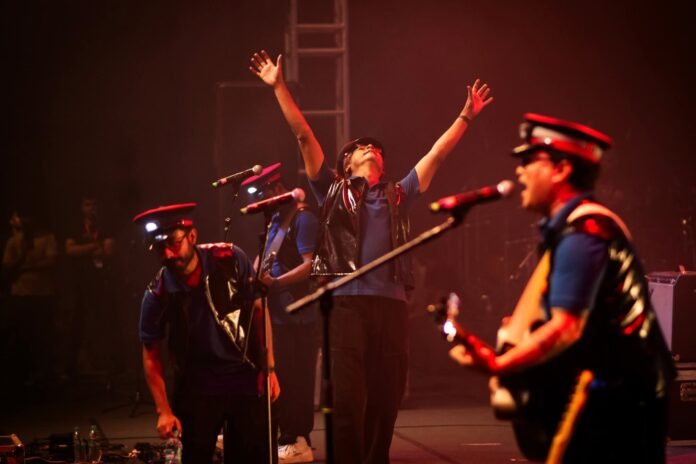A recent satirical musical by Bengali actor and singer Anirban Bhattacharya has gone viral in Kolkata, sparking lots of discussions. The song cleverly touches on politics and leaders across West Bengal, just ahead of next year’s assembly elections.
This isn’t the first political song to create buzz, but it’s unique in how directly and humorously it calls out many political figures. As activist Prasenjit Bose points out, “I don’t remember any song that specifically names and criticizes individual leaders like this before.”
While songs criticizing politicians aren’t new, Bose notes that most have focused on top national leaders. Regional leaders in smaller parties or lower-level officials haven’t been targeted as openly before. That’s what makes Anirban’s song stand out—its straightforward, punchy message covers all major parties and leaders in the state.
Senior journalist Suvashis Maitra adds an interesting historical angle. He recalls that in the past, satirical songs even targeted reformers like Ishwar Chandra Vidyasagar, suggesting that political music has long been a part of social commentary. Maitra says, “This song is different; it’s brief but covers a lot of ground. It uses satire to entertain and also to provoke. It gets people thinking and talking.”
Typically, political art favors specific parties or ideologies. But Anirban’s song broadens the scope, calling out leaders from different political backgrounds. Such songs do more than entertain—they can stir emotions, inspire activism, or even spark controversy. And controversy, as they say, often boosts popularity.
Bose praises the song’s message as powerful and relatable. “It’s direct without crossing into nasty language,” he says. The song captures common people’s sentiments, and its boldness lies in naming and ridiculing leaders without resorting to abuse.
When asked about similar songs from around the world, an AI assistant listed a few notable examples. One such song is R.E.M.’s ‘Exhuming McCarthy,’ which criticized U.S. Senator Joseph McCarthy during the Cold War. Another example is songs targeting Margaret Thatcher after her death, protesting her policies. Interestingly, the AI also included Anirban’s song in that list, highlighting how such satirical works often challenge powerful figures.
Most of these songs either don’t name specific leaders or aren’t performed during their lifetimes, unlike Anirban’s bold, live critique. This musical piece in Kolkata stands out for its daring approach in today’s political landscape, proving how art can be a strong tool for social commentary and public engagement.



